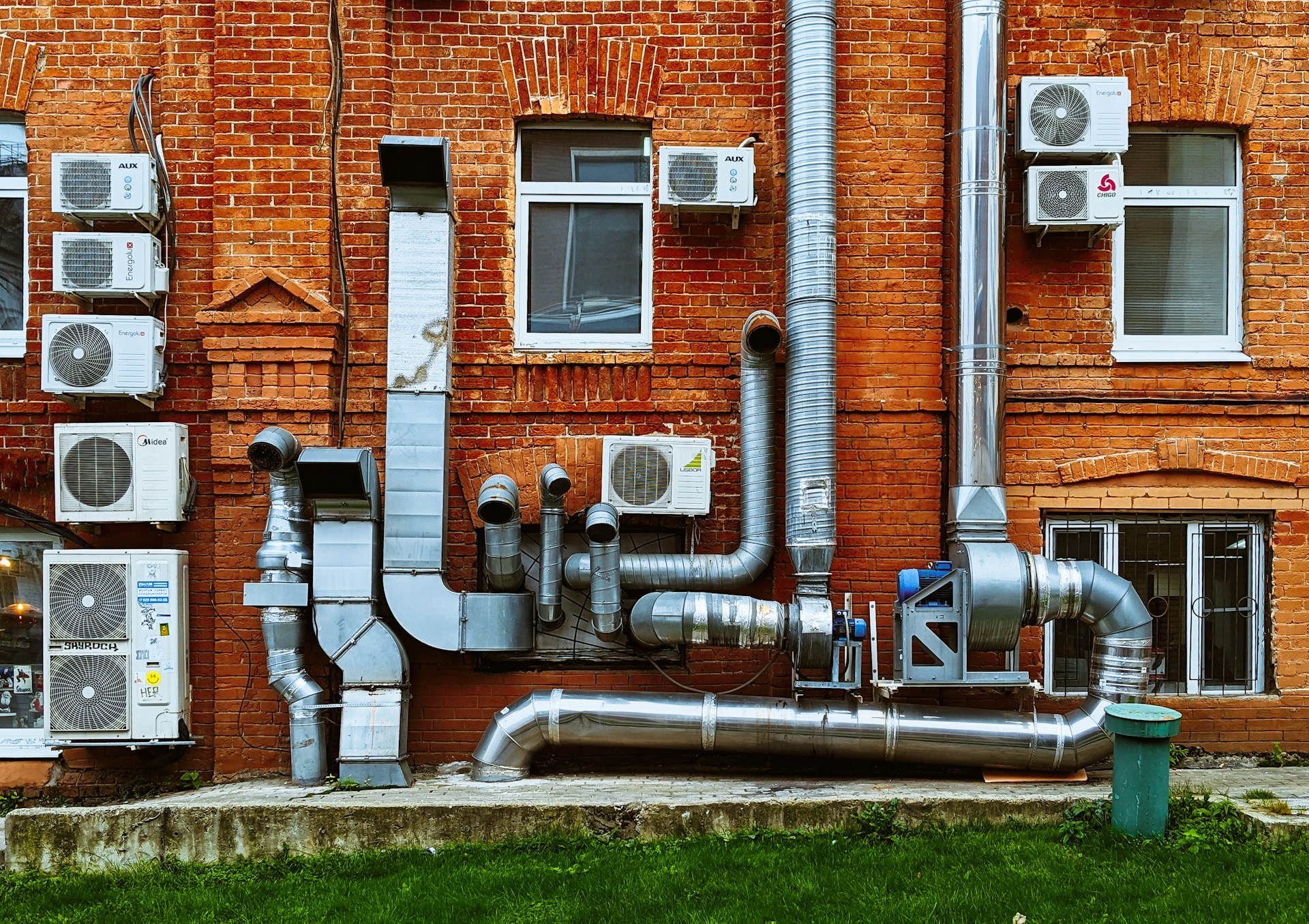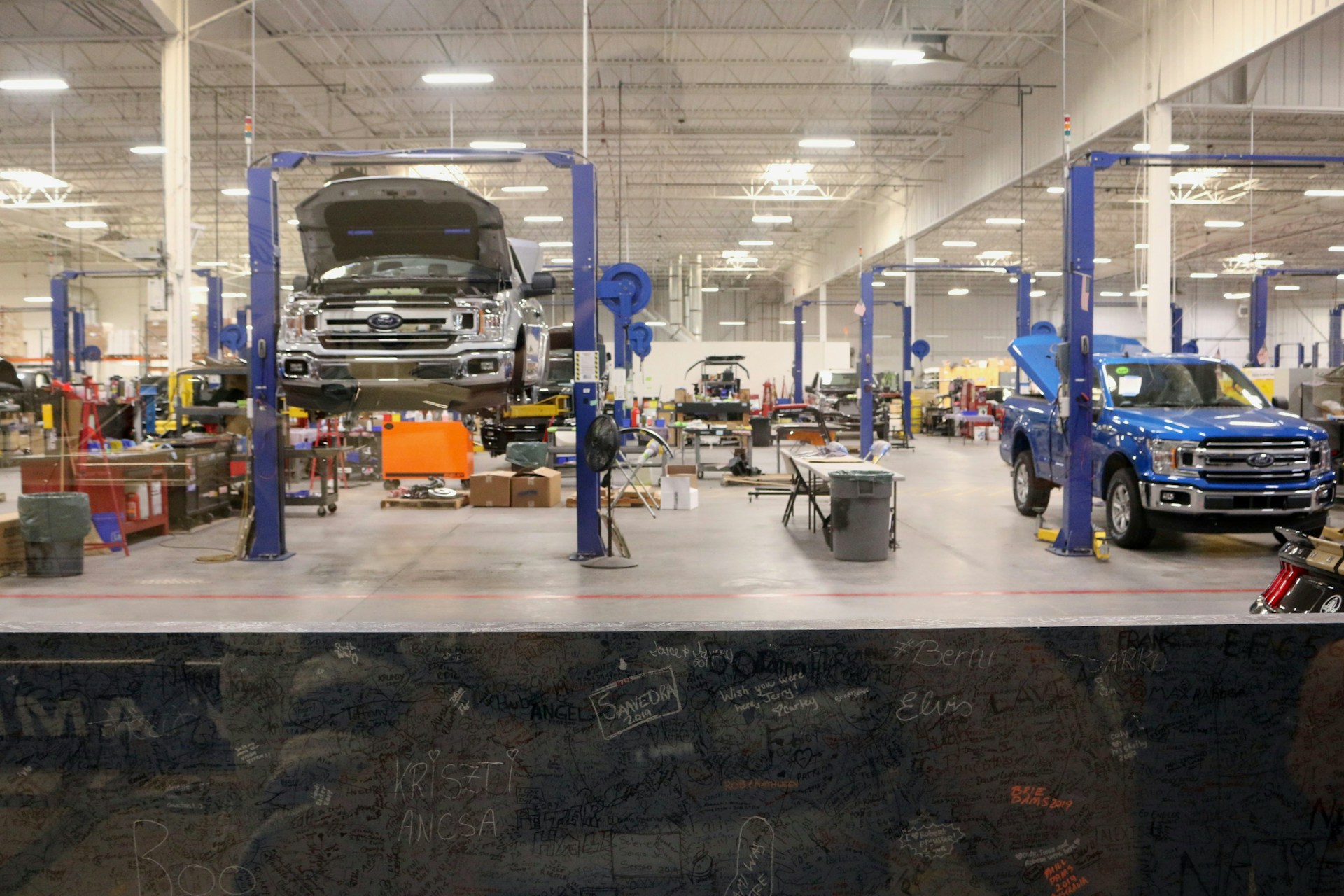In the rapidly evolving landscape of heating, ventilation, and air conditioning (HVAC), new technologies are emerging that promise to revolutionize comfort, efficiency, and environmental footprint. For business owners and facility managers, understanding these innovations is crucial for maintaining a competitive edge and optimizing operational costs.
This blog post will delve into the latest innovations in HVAC technology set to make waves in 2024. You’ll learn more about smart systems, energy-efficient models, and future trends that are reshaping the industry.
Smart HVAC Systems: The Future of Intelligent Climate Control
Smart HVAC systems represent the future of intelligent climate control, revolutionizing how to manage indoor environments. These advanced systems employ sophisticated sensors and machine learning algorithms to continuously monitor and adjust temperature, humidity, and air quality in real time. Key features include:
- Predictive Maintenance: By analyzing data from various sensors, smart HVAC systems can predict component failures and alert maintenance teams, thereby reducing downtime and extending equipment lifespan.
- Integration with Smart Home Devices: These systems can seamlessly integrate with other smart home technologies, such as thermostats, lighting, and security systems, to create an optimized and efficient ecosystem.
- Remote Monitoring and Control: Facility managers benefit from the ability to remotely oversee and manage HVAC systems from any location, ensuring consistent climate control and energy efficiency across multiple properties.
In essence, smart systems not only enhance operational efficiency but also contribute to significant energy savings and improved user comfort, positioning them as a critical innovation in the domain of intelligent building management.
Energy-Efficient Models: Leading the Charge Towards Sustainability
In today’s rapidly evolving landscape, the focus on sustainability and energy efficiency is paramount. The latest innovations are at the forefront of this movement, delivering advanced models that prioritize reduced energy consumption. Among these cutting-edge solutions, several stand out for their remarkable efficiency:
- Variable Refrigerant Flow (VRF) Systems: These systems offer precise temperature control by adjusting the flow of refrigerant to various zones, ensuring optimal comfort levels while significantly reducing energy usage.
- Geothermal Heat Pumps: Utilizing stable underground temperatures, geothermal heat pumps provide efficient heating and cooling, boasting an impressive potential to lower energy consumption by up to 50% compared to conventional HVAC systems.
- Energy Recovery Ventilators (ERVs): ERVs capture energy from exhaust air to precondition incoming fresh air, enhancing indoor air quality and alleviating the burden on HVAC systems, resulting in substantial energy savings.
By integrating these advanced energy-efficient models, businesses can lead the charge toward a sustainable future, demonstrating a commitment to innovation, competitiveness, and environmental stewardship.
Sustainable HVAC Solutions: Prioritizing Environmental Impact
The HVAC industry is undergoing a significant transformation as it aligns with the global emphasis on environmental sustainability. Innovative solutions are being introduced to minimize carbon footprints and enhance eco-friendly practices. Key advancements in sustainable HVAC technology include:
- Solar-Powered HVAC Systems: Utilizing photovoltaic panels to generate electricity for heating and cooling, these systems reduce dependence on fossil fuels and lower greenhouse gas emissions.
- Natural Refrigerants: Modern HVAC units now employ natural refrigerants, such as carbon dioxide and ammonia, which have minimal global warming potential compared to traditional refrigerants like chlorofluorocarbons (CFCs) and hydrochlorofluorocarbons (HCFCs).
- Green Building Integration: HVAC systems are increasingly designed to integrate seamlessly with green building practices. Features such as low-energy fans, high-efficiency filters, and advanced energy management systems contribute to achieving sustainability certifications like LEED and BREEAM.
These smart systems and advancements not only highlight the industry’s commitment to environmental stewardship but also demonstrate a forward-thinking approach to innovation and competitiveness in the evolving market landscape.
Advanced Air Quality Management: Breathing Easier Indoors
In today’s evolving landscape, advanced air quality management within indoor environments has become paramount, particularly in response to recent global health challenges.
Cutting-edge HVAC technology is at the forefront of this evolution, integrating several sophisticated methodologies aimed at enhancing air quality and safeguarding health. Key innovations include:
- High-Efficiency Particulate Air (HEPA) Filters: These filters are engineered to remove up to 99.97% of airborne particles, such as dust, pollen, and pathogens. Integration of HEPA filters in modern HVAC systems ensures a significant reduction in respiratory risks.
- Ultraviolet Germicidal Irradiation (UVGI): Utilizing UV light, UVGI technology effectively deactivates microorganisms, including bacteria and viruses. HVAC systems equipped with UVGI offer a robust solution for mitigating harmful pathogens and improving overall air quality.
- Bipolar Ionization Technology: This advanced technology generates ions that attach to and neutralize airborne contaminants. Its growing popularity in contemporary HVAC systems is attributed to its efficacy in enhancing air purification and ensuring a healthier indoor atmosphere.
By incorporating these state-of-the-art technologies, modern HVAC systems are revolutionizing indoor air quality management, promoting healthier and safer environments for all.
Cutting-Edge Climate Control Technologies: Precision and Comfort
In the realm of climate control, precision and comfort are paramount, particularly in environments where maintaining optimal conditions is critical.
The latest advancements in HVAC technology are revolutionizing how to achieve goals, offering cutting-edge solutions that marry precision with energy efficiency. Central to these innovations are several key technologies:
- Inverter Technology: This innovation enables HVAC systems to continuously adjust heating and cooling outputs, closely matching the desired temperature. This not only ensures consistent comfort but also significantly enhances energy efficiency by minimizing the frequent on/off cycling characteristic of traditional systems.
- Zoned HVAC Systems: By dividing a building into multiple zones, each with its climate control settings, zoned HVAC systems provide tailored temperature management. This approach not only ensures personalized comfort for occupants but also reduces energy waste, as unoccupied areas can be set to different temperatures.
- Radiant Heating and Cooling: Utilizing surfaces such as floors, walls, and ceilings to distribute thermal energy, radiant heating and cooling systems offer a uniform temperature distribution. This method decreases reliance on forced-air systems, thus improving overall comfort and achieving substantial energy savings.
These advanced climate control technologies and energy-efficient models epitomize the evolution of the HVAC industry, driving competitiveness and innovation while delivering superior comfort and efficiency.
Future Trends in HVAC Technology: What to Expect
The HVAC industry is on the brink of significant transformation, driven by technological advancements that promise to elevate efficiency, sustainability, and user experience to unprecedented levels. In 2024 and beyond, several key future trends are poised to reshape the sector:
- AI and Machine Learning: These technologies are revolutionizing HVAC systems by analyzing vast datasets to optimize performance, predict maintenance requirements, and deliver personalized climate control solutions. The integration of AI and machine learning ensures systems operate at peak efficiency and adapt to users’ unique needs.
- Internet of Things (IoT) Integration: IoT is enabling seamless communication between devices, leading to smarter and more efficient HVAC systems. By leveraging real-time insights and automating processes, IoT integration enhances overall system performance and user satisfaction.
- Blockchain for HVAC: Blockchain technology introduces a secure, transparent method for tracking energy transactions and managing data within HVAC systems. This innovation not only enhances energy management but also reduces the risk of fraud and bolsters trust in green energy initiatives.
These emerging trends underscore the ongoing evolution within the HVAC industry, positioning it at the forefront of technological innovation and competitive excellence.
Conclusion
The HVAC industry is on the cusp of a technological revolution, with innovations that promise to redefine the experience of indoor climates. From smart systems and energy-efficient models to sustainable solutions and advanced air quality management, the future of HVAC technology is bright and full of potential.
By staying informed about these trends and incorporating the latest advancements, businesses can optimize their operations, enhance comfort, and contribute to a more sustainable future. For those looking to stay ahead of the curve, now is the time to explore these latest innovations and integrate them into your business strategy.
With the right approach, you can harness the power of cutting-edge technology to achieve greater efficiency, competitiveness, and innovation in your industry. Learn more about these future trends and how they can benefit your business by reaching out to industry experts and exploring the latest offerings in technology.





